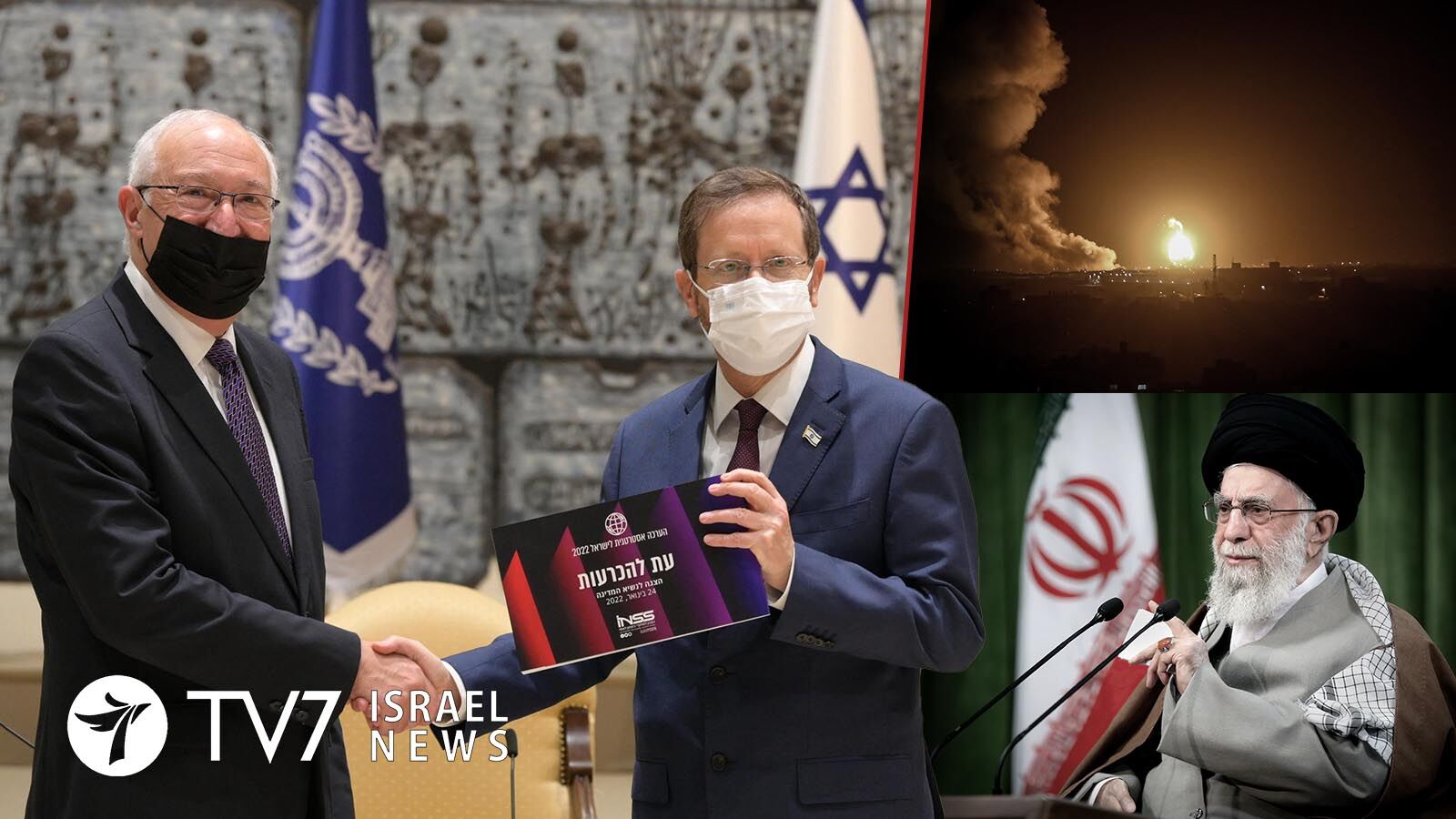The annual Strategic Survey for Israel 2022 is prepared by the Institute for National Security Studies (INSS), registering all major security and diplomatic challenges facing the country in the coming year.
By Erin Viner
Israeli President Isaac Herzog was presented with the report by INSS Director Manuel Trajtenberg and INSS senior fellows.
Analysts at the Institute identified the greatest existential threat to Israel as Iranian nuclear advancement, confirming intelligence reports that it would only take weeks for the Islamic Republic to achieve atomic capability.
It also warned that Iran is acquiring increasing ability to orchestrate simultaneous attacks against Israel on multiple fronts via its proxy terrorist militias – from the north by the Lebanon-based Hezbollah, and the Islamist Hamas and other radical fundamentalist armed groups in Gaza from the south – with Tehran-supplied weaponry including advanced surface-to-surface missiles, rockets and unmanned aerial vehicles (UAVs, drones).
Israel has long taken military action to prevent Iranian entrenchment in neighboring Syria and obstruct weapons shipments from reaching its regional allies.
The INSS also advised Jerusalem to bolster cooperation with Washington to prevent Israel from becoming dangerously isolated in the event that agreement is reached in Vienna to revive the 2015 Joint Comprehensive Plan of Action (JCPOA) nuclear accord with Iran.
Israeli leaders have long opposed the JCPOA as too weak to prevent Iran from obtaining nuclear bombs. The Islamic Republic of Iran has repeatedly threatened to annihilate the Jewish State.
Other serious matters addressed by the INSS included the conflict with the Palestinians, internal divisions in Israeli society and global climate change.
President Herzog thanked the scholars for the report, saying, “I greatly respect the INSS, and I read its output most consistently. The world is undergoing very dramatic changes. The advantage of what you are doing is that you are getting the nation’s leaders, public opinion, and public opinion shapers to focus on core issues on which we must focus. And the past year proved just how much attention they require.”
“Your annual report identifies dangers and threats, but also points to opportunities and openings for hope,” the Israeli President added.
“Today there is an emerging regional understanding that the future of the Middle East is a future of cooperation. In the face of the Iranian threat and its dangerous proxies in the region, we must cooperate with our friends. Not just for the sake of Israel’s citizens, but for all the inhabitants of the Middle East. This is a regional interest of the highest order. Israel’s security is tightly bound up with its national resilience, in our ability to deal with the most profound disagreements, without giving up on our faith in ourselves. We have the power to live together and act as one people. Bridging divides, including political ones, is perhaps the most important step for maintaining Israel’s security, stability, and prosperity,” he said.
